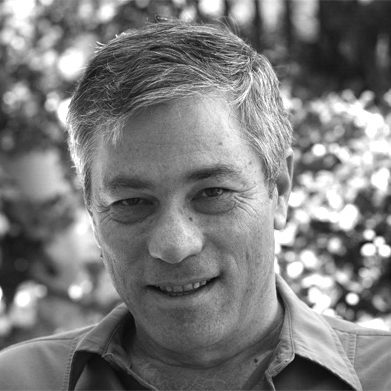Two Israelis made world headlines this week. In freezing Stockholm, Prof. Dan Shechtman of the Haifa Technion (Israel’s Institute of Technology) won the Nobel Prize in chemistry. In sunny Perth, Australia, Lee Korzits won the gold medal at the women’s Sailing World Championships, bringing her closer to the 2012 London Olympics.
While in both cases this is a huge personal accomplishment, I believe that it says something about the hotbed which has bred these two outstanding individuals: their country, Israel.
The 70-year-old Prof. Shechtman won the prestigious prize for discovering “quasicrystals”. Please don’t expect me to explain what those are. Even his wife, Prof. Tzipora Shechtman of Haifa University, has said she couldn’t. More than 40 years ago I tried to win acceptance to the department of chemistry at the Technion, but luckily for me, they rejected me. So I can’t interpret for you what the papers say about those mysterious “crystals whose atomic pattern is highly geometrical yet never repeats.”
The Royal Swedish Academy of Sciences (RSAS), on the other hand, tried its best. “Contrary to the previous belief that atoms were packed inside crystals in symmetrical patterns, Shechtman showed that the atoms in a crystal could be packed in a pattern that could not be repeated,” the RSAS said.
The Swedes, with understatement, added an interesting note. “His discovery was extremely controversial. In the course of defending his findings, he was asked to leave his research group. However, his battle eventually forced scientists to reconsider their conception of the very nature of matter.”
Let me tell you in an Israeli style what really happened. In 1982, while on sabbatical at Johns Hopkins University, Shechtman mixed in his laboratory aluminum with manganese and then chilled it and studied the atomic structure with the electron microscope. Instead of finding disorder, as expected, he saw concentric circles, each made of 10 bright dots the same distance from each other. Four or six dots in the circles would have been possible, but absolutely not 10. In an interview at the Technion he recalled that the finding had caused him to say out loud in Hebrew, “There can be no such creature.”
His colleagues took great pains in reassuring him that indeed, “There was no such creature.” One of them brought him a book. “Why don’t you read it, and realize it can’t exist?”
“I know it can’t exist,” replied Shechtman, “but here it is.” Then came ridicule and expulsion. The worst was Prof. Linus Pauling, the double-Nobel laureate who, until his death in 1994, kept saying that Shechtman was “talking nonsense.”
Lee Korzits’ hard road to the top was different. Nobody could say anything once she came in first, and the only hostility she encountered was that of winds and waves. Already in 2003, the 27-year-old Israeli became the youngest windsurfing world champion. In 2006, however, following a board-surfing injury and professional dispute with the national team coach, Korzits quit competing for several years. The interval was marred with personal difficulties. Yet recently she made a tremendous comeback, and now, more mature and seasoned, she is preparing for the London Olympics.
Apart from the natural national pride, there is something of these two heroes which is engrained in the DNA of every Israeli, and indeed, in the Israeli collective. Like in Prof. Shechtman’s case, for decades people looked at the State of Israel with wonder, some with hostility, saying “There can be no such creature.” For how can there be a Jewish and democratic state? An island of democracy in an ocean of tyrannical regimes or chaos? A country void of any natural resources and under constant mortal danger, which has nevertheless produced a stable economy, blooming culture and ten Nobel Prize laureates?
A case in point is the way Israel has been fighting Arab terrorism. From day one we have proclaimed that the old laws of war, enacted when uniform-wearing armies were fighting each other, turned obsolete once the enemy became elusive, using un-involved civilians as human shields. We were reprimanded for that, because like in the laboratory at Johns Hopkins, this was not what the books were saying. Took some time and painful lessons for the world to change its mind.
And the story of the young sailor, isn’t that the story of the Jewish state in the first place? Rising from the ashes and suffering harsh blows, yet with strong will and perseverance, always aspiring for new peaks?
In his speech at the banquet in Stockholm, Prof. Shechtman said that “It is therefore our duty as scientists to promote education, rational thinking and tolerance.” Upon returning to his hometown, Haifa, Mayor Yona Yahav took him at his word. Soon, the Nobel Prize Laureate will lead a program to promote the teaching of science and technology in the city’s kindergartens. Lee Korzits, meanwhile, serves as a sport model for young generation in our country.
So much for one week in Israel.
Uri Dromi is a columnist based in Jerusalem.






















 More news and opinions than at a Shabbat dinner, right in your inbox.
More news and opinions than at a Shabbat dinner, right in your inbox.